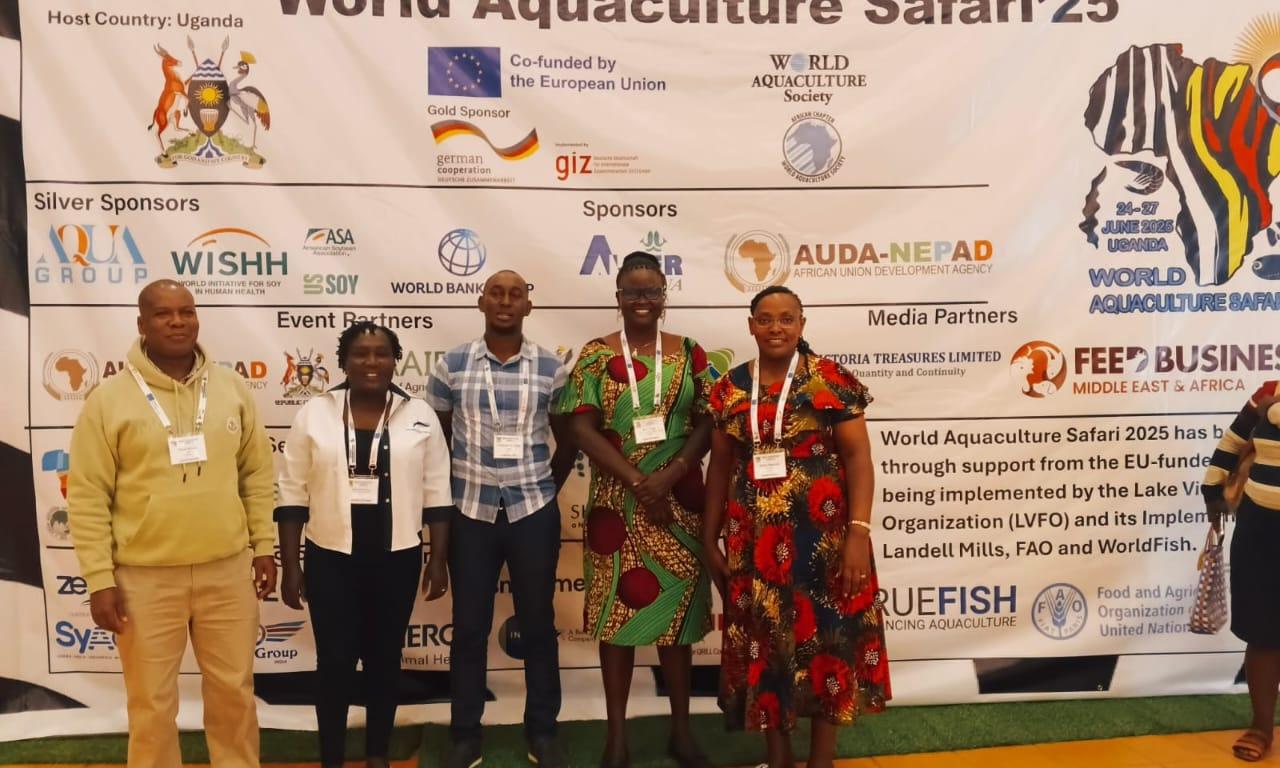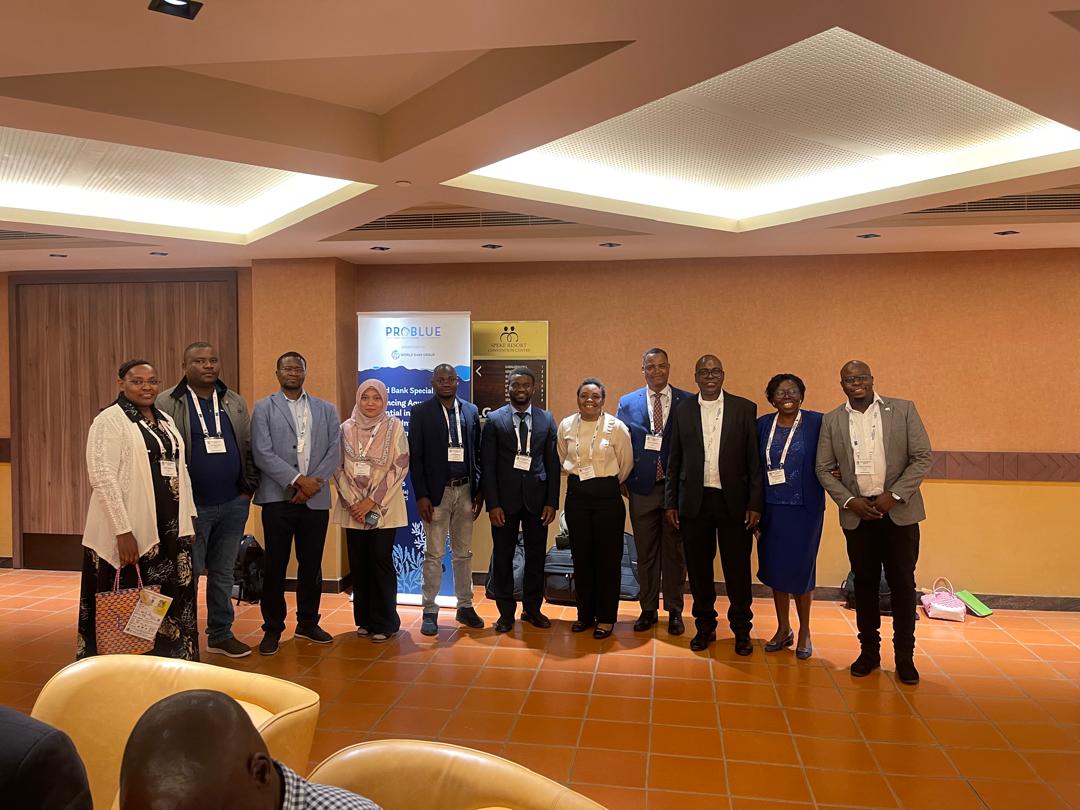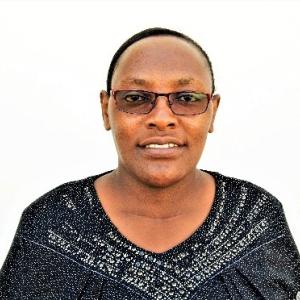
The world’s oceans are vital for global food security if managed wisely. At the 2025 World Aquaculture Society Conference, a clear path forward emerged: Integrated Multi-Trophic Aquaculture (IMTA), a sustainable practice that can transform coastal communities while protecting marine ecosystems.
The World Aquaculture Society (WAS) Conference, held in Munyonyo, Uganda, from June 24th to 27th, provided an important platform for global leaders in aquaculture to gather, collaborate, and share insights. The Asia–Africa BlueTech Superhighway (AABS) project was front and center in this discussion, showcasing its commitment to sustainable aquaculture and its potential to create a lasting impact for both communities and the environment.
A focus of AABS is IMTA, an approach where multiple species are farmed together in a balanced ecosystem. This innovative model not only promotes environmental sustainability by improving water quality and enhancing biodiversity but also offers economic benefits, particularly for women and youth in coastal communities. By diversifying income sources and building climate-resilient livelihoods, IMTA is helping communities adapt to changing conditions while fostering a more sustainable aquaculture of seaweeds, bivalves and finfish.
The AABS Kenya team attended the conference to highlight IMTA’s transformative potential. Esther Wairimu, lead, IMTA, AABS project, along with the team, shared their latest findings and strategies for scaling IMTA across different regions. Research Analyst Douglas Okemwa shared an engaging presentation on "Opportunities for Job Creation Across the IMTA Value Chain in Kenya: Gender Involvement in IMTA," emphasizing the importance of gender inclusion and community empowerment in aquaculture. The presentation sparked engaging discussions on how IMTA can be scaled across coastal regions.
Key Takeaways: IMTA as a Pathway to Sustainability
IMTA is not only an ecological solution, but it also strengthens the social and economic resilience of coastal communities. By combining science with community involvement, IMTA is proving to be an effective approach to improving livelihoods while preserving marine ecosystems.
Global Connections, Shared Vision
The WAS conference also presented a valuable opportunity for the WorldFish team to build connections with researchers and experts from around the world. The team engaged in meaningful discussions with scholars like Maryam Bakali from Abdelmalek Essaâdi University in Morocco, Patrick Sorgeloos, Kevan Main from Florida State University, and Menaga Meenakshisundaram from ICIPE in Kenya’. These collaborations enriched the understanding of IMTA’s global applications and inspired fresh ideas for its expansion in new contexts.

A Moment of Pride: Breaking New Ground in Aquaculture
One of the most exciting moments of the conference was the unveiling of Nutri Pond Feed, a product designed to nourish both fish and the broader food web, offering a more natural and sustainable solution for pond farmers in terms of feed waste reduction and cutting down on production costs. This groundbreaking product was developed in collaboration with Wageningen University and Skretting. Rodrigue Yossa, Director of Bioscience at WorldFish, led the research and development of this innovative feed, which is now poised to transform the aquaculture market.
Renewed Commitment: Moving Forward with IMTA
With over 1,800 attendees from 79 countries, including a majority from Africa, the conference was an opportunity to celebrate achievements, exchange ideas, and forge new partnerships to shape the future of aquaculture.
IMTA as a Pathway to Sustainable Aquaculture
- Promotes greater environmental sustainability than traditional monoculture systems by enhancing ecosystem balance and resource efficiency.
- Increases long-term profitability and productivity per cultivation unit through better use of nutrients and diversified outputs.
- Delivers both environmental and economic gains, making it an attractive model for fish farmers, investors, and conservation advocates alike.
- Offers flexibility across diverse environments, from open-water to land-based systems, and in both marine and freshwater contexts (including “aquaponics” or “partitioned aquaculture”). Successful implementation depends on selecting complementary species combinations based on ecosystem roles and market value.
- Represents more than a farming technique - it is a movement toward resilient, inclusive, and climate-smart aquaculture that enables communities, economies, and ecosystems to thrive together.
As AABS continues to expand IMTA initiatives across Asia and Africa, the insights from WAS 2025 will guide future innovations and partnerships, with a call to adopt more climate-smart aquaculture practices
